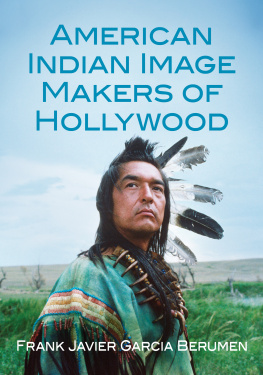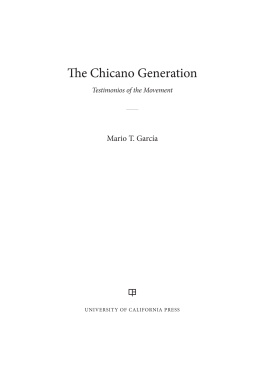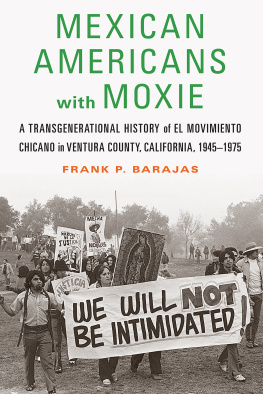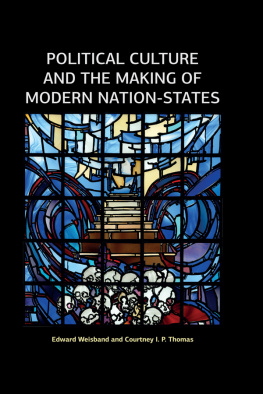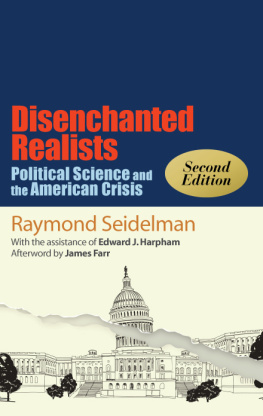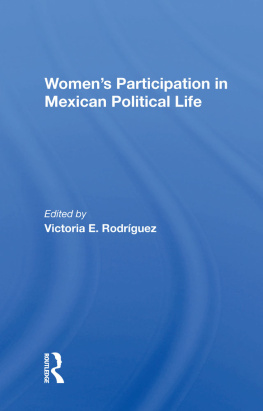In Memoriam
I would like to honor the memory of the following persons, who directly or indirectly helped in this project, mentored me about Chicano history, or guided me with their friendship and wisdom:
Adolfo Rudy Vargas (October 18, 1942June 4, 2009), co-founder of the Educational Opportunity Program (EOP) at California State University, Los Angeles, filmmaker, activist for social change.
Mario Vasquez (November 25, 1946July 10, 2009), attorney and civil rights activist.
Jeanne Saenz Gonzalez (June 4, 1955May 16, 2008), who transcribed the majority of the interviews for this book and was a dedicated supporter of this project.
Gene Buckman (died September 23, 1986), activist for social change.
Rudy Dudie Rendon (October 5, 1953February 6, 2000), activist for social change, educator, and friend.
Acknowledgments
I wish to thank and acknowledge the following persons:
Congressman Edward R. Roybal, for selecting me to write his autobiography and for his interviews, all of which occurred after he had suffered a stroke. Despite his physical limitations and constraints, he bore his difficulties with grace and dignity and never complained.
His children, Congresswoman Lucille Roybal-Allard, Lillian Roybal Rose, and Ed Roybal Jr., for their interviews and for sharing family information that provided an invaluable portrait of their dad as a private person.
Irma Nez, niece of Mr. Roybal (through his wife, Lucille Beserra), and her husband, Juan Gonzalez, for their several interviews and vast amount of anecdotes, memories, and information. Also, thanks to Irma for facilitating the Roybal family member interviews and for her unswerving support of this project for many years.
The surviving siblings of Mr. Roybal, Elsie Roybal and Louis Roybal, for sharing their rich and invaluable memories and reminiscences of the Roybal family in New Mexico and California, their beloved parents and late siblings, and their brother Edward R. Roybal.
Evelyn Verdugo, niece of Mr. Roybal, for her several interviews. As the Roybal family historian and keeper of family history, she contributed her vast knowledge and history of the Roybals and Tafoyas (Mr. Roybals mothers family) of New Mexico and California.
David N. Sigler, Special Collections Assistant and his staff at California State University, Los Angeles (CSULA), for their gracious and generous assistance in my research into more than a hundred boxes of information in the Edward R. Roybal Papers and other collections.
The staff at the UCLA Chicano Studies Research Center Edward R. Roybal Collection.
The staff at the Widener Library and other libraries at Harvard University, where I reviewed the Congressional Record, tons of newspaper clippings, and virtually every book ever published on the Mexican American experience in the United States, U.S. history, and the U.S. Congress.
The following scholars, who undertook research on the political campaigns of Edward R. Roybal years ago: Katherine Underwood, Kenneth C. Burt, Beatrice W. Griffith, Richard A. Donovan, and Maria Linda Apodaca, among others.
The following newspapers: the California Eagle, the Eastside Sun, the Northeast Bulletin News, owned by the Koevner Family, which provided a rich, precious, and valuable history of the daily living of Mexican Americans and other communities in East Los Angeles; the Daily News, the Los Angeles Times, Newsweek, Time magazine, the Washington Post, the Miami Herald, the Congressional Record, the New York Times, the Boston Globe, La Opinion, the San Francisco Chronicle, the Fresno Bee, and the defunct Los Angeles Herald-Examiner.
The following persons provided invaluable information and perspectives through their gracious interviews: Jorge Lambrinos, former chief of staff to Mr. Roybal and director of the Edward R. Roybal Gerontology Center; Henry Lozano, former chief of staff to Mr. Roybal; Antonia Hernandez, director of the Mexican American Legal Defense Fund (MALDEF); Dolores Huerta, co-founder of the United Farm Workers union (UFW); Congressman Esteban Torres; Jaime Regalado, political scientist and director of the Pat Brown Institute at CSULA; Richard Santillan, professor emeritus of ethnic and womens studies at Cal Poly Pomona; and Rose Marie Sanchez, a former resident of Chavez Ravine.
Last but not least, I wish to thank David Sandoval, who was the key person in convincing CSULA to produce the Edward R. Roybal biography. He served as liaison among CSULA, Jeff Penichet (publisher), and the Roybal family for years and provided material, political, and logistical support for this project. Thanks must also go to Aliza Zepeda-Madrid and Jeanne Saenz Gonzalez, who did the interview transcripts and provided much invaluable technical and material support for the project for years.
Many other persons I wished to interview for the book were inaccessible, chose not to be interviewed, were infirm with age or illness, or had passed away (e.g., Bert Corona, Anthony Quinn, Henry B. Gonzalez) while I was in the process of establishing their respective interviews. In reality, not every individual one wishes to interview for a book will necessarily be available for many reasons, and one always ends up with a fraction of the input for which one wishes; such is the process of research.
This book was researched, written, and completed without the benefit of any foundation monies, grants, or stipends. Neither was there a staff, assistants, or committee to provide additional support. Instead, there were many well-meaning people who contributed by their interviews, feedback, and support on a purely voluntary basis. The book has come to fruition in the old fashioned barrio way, with corazn and ganas.
Finally, I wish to thank the indulgence of my family, friends, and loved ones, who put up with my monastic existence, highs and lows, impatience, and out-of-the-ordinary temperament for many years as I deprived them of the customary time, attention, support, and love that one gives to all those whom one cares for and loves.


